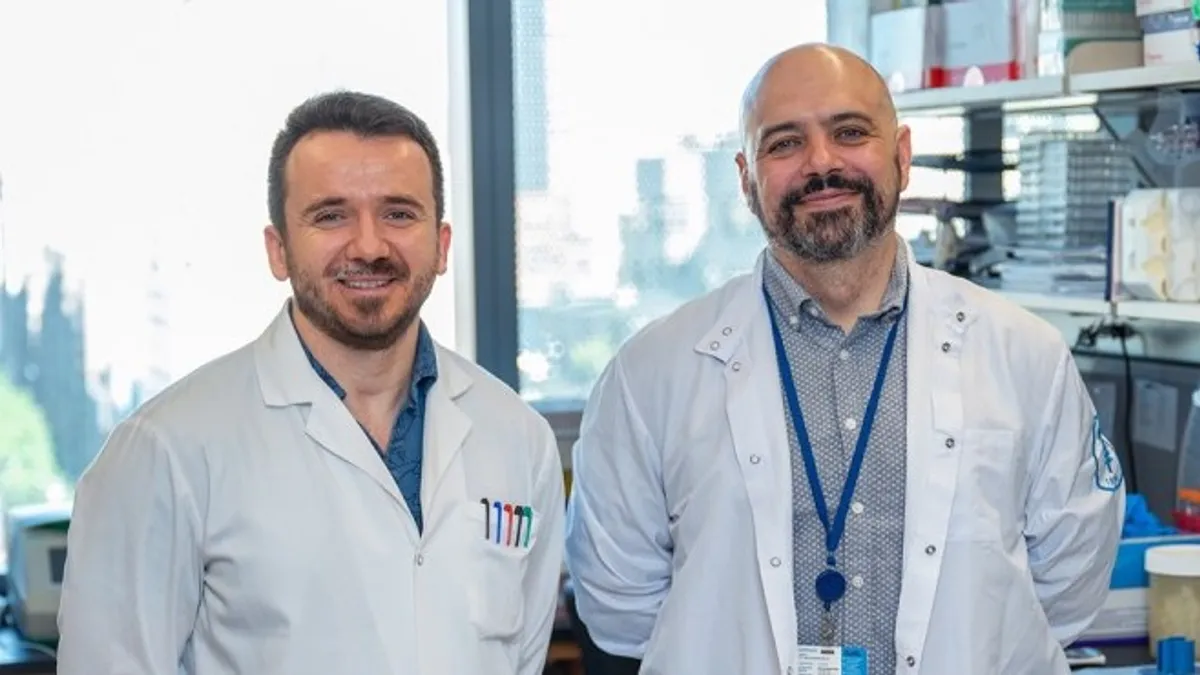The splicing tool CRISPR has vast potential in the growing field of gene editing, but there is still so much to be learned about how complex diseases like cancer mutate and spread. To slash their way through the jungle of cancer's genetic code more efficiently, researchers are exploring a new CRISPR-based technique called MACHETE.
Even the bestselling and broadest-reaching cancer immunotherapies in the world — including Merck & Co.'s Keytruda and Bristol Myers Squibb's Opdivo — are most effective in tumors with certain mutations, so understanding how these genetic changes affect treatment can make personalization more feasible.
A team of scientists at Memorial Sloan Kettering Cancer Center used their technique MACHETE — short for "molecular alteration of chromosomes with engineered tandem elements" — to replicate complex genetic changes that occur when cancer is present. By slicing these repeated alterations en masse, they can pinpoint certain changes that could later be targeted with personalized therapy, according to a press release from Sloan Kettering.
Already, Francisco Barriga and Kaloyan Tsanov of the Sloan Kettering Institute — the lead authors of the study published this month in the journal Nature Cancer — found that genetic changes in a mouse with pancreatic cancer prompted by their MACHETE splicing looked similar to naturally occurring mutations in another mouse, putting the new tool on the map.
Why MACHETE matters
Cancer is often much more complex than just one or two mutations. Tumors usually carry around 24 copy number alterations, or CNAs, which are repeated mutations that affect large sections of the genetic code.
And the more complex the tumor, the worse the outcome. When tumors have a higher number of CNAs, they are more difficult to treat. One of the problems facing scientists studying cancer is tumors in real life tend to be much more unpredictable and have more of these CNAs than anything that can be recreated reliably in a lab.
Now, MACHETE allows for models that are more true to life, which can lead researchers down new paths to figure out which interventions are right for specific patients, Sloan Kettering said.
The two scientists, Barriga and Tsanov, found the answer in a true moment of collaboration. As they worked with MACHETE in a mouse with pancreatic cancer, they noticed the genetic changes led to the same outcome as in a mouse with natural mutations from a completely different project Tsanov was investigating.
To put the tool to the test, the researchers started with something they knew — slicing a group of genes known for suppressing tumors would give the tumor room to grow. But what they discovered using MACHETE was that this also removed a genetic section that gives immune cells the signal to destroy cancer cells. This gene deletion, therefore, was helping tumors in two different ways — and that information can be used to help treat patients with these kinds of CNAs through very direct treatment.

And of course, there's the name. A colleague of Barriga's taped a photo of action star Danny Trejo, who plays the revenge-driven ex-cop named "Machete," to his desk in the lab, Sloan Kettering reported.
"In the beginning, we didn't even want to put MACHETE in the title of our paper, to better highlight the fascinating biology we found," Barriga said in a statement.
The CRISPR revolution
Studying the genetic causes of cancer gives drugmakers the tools not only to discover and develop monumental cancer therapies but also to find the patients who need them most. And CRISPR tools like MACHETE have the potential to reveal those intricacies more effectively.
CRISPR/Cas9 editing — which won the Nobel Prize in Chemistry in 2020 — has begun to make its mark in the drug development space, although still in the early stages. The editing tool can turn certain genes on or off, resulting in very precise treatment.
The only cancer target in clinical trials according to a 2021 report from DelveInsight is for two types of lymphoma — the phase 1 trial is being conducted by CRISPR Therapeutics, which has the highest market cap among the companies exploring the editing tool. The company has also teamed up with Vertex for a phase 1/2 trial in beta-thalassemia and sickle cell anemia.
Also bringing CRISPR/Cas9 into the clinic are companies like Editas Medicine, Intellia Therapeutics (with Regeneron) and Locus Biosciences (with CARB-X), all in rare diseases.
CRISPR and the new MACHETE tool could help scientists better understand and treat cancer and other diseases by revealing and changing the underlying cause.
Even just the first study with a certain type of CNA evoked more curiosity around MACHETE, and other research groups have already begun the process of putting it to work.
Barriga said in the release: "MACHETE provides a framework for investigating large deletion events beyond just cancer."





















